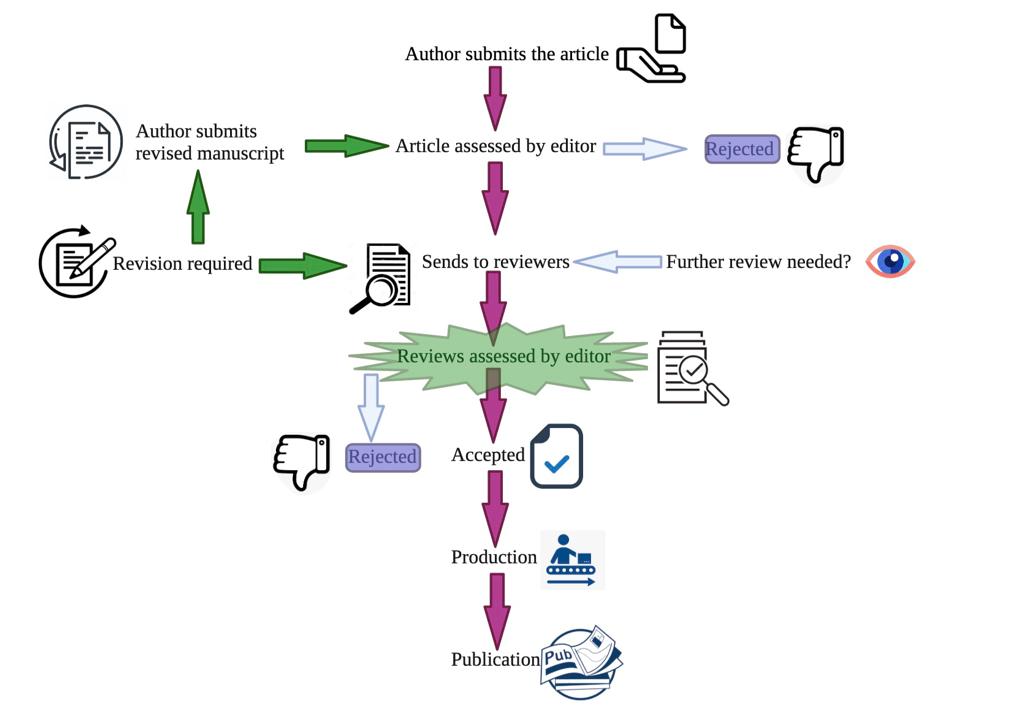About the Journal
Editorial Board
Editorial Office and Publisher
Ownership
Article Processing Charge
Open Access and Licensing
Personal Data Protection
Terms and Conditions: Cookie policy and Privacy policy
Copyright and Copyright Transfer Agreement
Visagaa Publishing House Repository Policy
Visagaa Publishing House CrossMark Policy
The Initiative for Open Citations (I4OC)
Archiving
Plagiarism Policy
Online first
Current issue
Archive
Ethics Statements for Natural Resources for Human Health
Ethical Guidelines
Post-Publication Policies
Responsibilities of Editors and Publishers
Conflict of Interest Statements for Natural Resources for Human Health
Human and Animal Rights Policy
Complaints and Appeals Policy
Allegations of Research Misconduct Policy
Authorship and Contributorship Policy
Publication Ethics and Malpractice Policy
Ethics approval and informed consent
Guidelines for the Use of Generative AI and AI-Assisted Technologies in Manuscripts for Natural Resources for Human Health
For authors
Instructions for Authors
Submitting manuscript – step by step
Authorship and Contributor Guidelines
For reviewers
The peer-review process
Recognition for Reviewers
Visagaa Author Services
About the Journal
Editorial Board
Editorial Office and Publisher
Ownership
Article Processing Charge
Open Access and Licensing
Personal Data Protection
Terms and Conditions: Cookie policy and Privacy policy
Copyright and Copyright Transfer Agreement
Visagaa Publishing House Repository Policy
Visagaa Publishing House CrossMark Policy
The Initiative for Open Citations (I4OC)
Archiving
Plagiarism Policy
Ethics Statements for Natural Resources for Human Health
Ethical Guidelines
Post-Publication Policies
Responsibilities of Editors and Publishers
Conflict of Interest Statements for Natural Resources for Human Health
Human and Animal Rights Policy
Complaints and Appeals Policy
Allegations of Research Misconduct Policy
Authorship and Contributorship Policy
Publication Ethics and Malpractice Policy
Ethics approval and informed consent
Guidelines for the Use of Generative AI and AI-Assisted Technologies in Manuscripts for Natural Resources for Human Health
The peer-review process
Peer review - what is it?
Peer review is the process through which the quality of a manuscript is determined before publication. Independent researchers with expertise in the relevant field of study evaluate submitted manuscripts for originality, validity, and importance to assist editors in deciding whether a manuscript should be published in their journal.
How does it function?
When a manuscript is submitted to a journal, it is evaluated to see if it fits the journal's submission guidelines. If it does, the manuscript will pass on to the Editors in Chief to assign the manuscript to suitable editors who will be responsible for the peer-review process. The editors will identify possible peer reviewers from the relevant field of research to conduct a peer review and give suggestions. Natural Resources for Human Health uses three types for the identification of potential reviewers. A minimum of two reviewers' comments is essential to conclude the decision of submission and NRFHH encourages editors to use the Web of Science Reviewers Locater service to identify the potential reviewers.
Natural Resources for Human Health uses a Double-blind mode of peer review which means the reviewers are unaware of the authors' identities, and the authors are unaware of who evaluated their manuscripts.
NRFHH follows a double-blind peer review. Authors will remain anonymous to the reviewers throughout the peer review process. When preparing manuscripts author(s) are advised to check the following common areas where manuscripts and submission files may reveal an author(s) identity.
1) Do not include names or affiliations anywhere in the manuscript or supplementary information.
2) Use the third person to refer to work the Authors have previously undertaken. Cite papers published by the Author in the text as follows: ‘[Anonymous, 2007]’.
3) Please confirm that the Figures do not have the names of any authors.
4) Do not include acknowledgment, references to funding sources, or author information in the article such information shall be shown in the cover letter.
5) Ensure those document properties are also anonymized eg. File names
Why should peer review be conducted?
Peer review is an essential component of scientific publishing since it verifies the manuscript's legitimacy. Peer reviewers are subject matter experts who provide their time to assist authors in improving their articles. Manuscripts that have undergone peer review should become:

Peer review is the process through which the quality of a manuscript is determined before publication. Independent researchers with expertise in the relevant field of study evaluate submitted manuscripts for originality, validity, and importance to assist editors in deciding whether a manuscript should be published in their journal.
How does it function?
When a manuscript is submitted to a journal, it is evaluated to see if it fits the journal's submission guidelines. If it does, the manuscript will pass on to the Editors in Chief to assign the manuscript to suitable editors who will be responsible for the peer-review process. The editors will identify possible peer reviewers from the relevant field of research to conduct a peer review and give suggestions. Natural Resources for Human Health uses three types for the identification of potential reviewers. A minimum of two reviewers' comments is essential to conclude the decision of submission and NRFHH encourages editors to use the Web of Science Reviewers Locater service to identify the potential reviewers.
- Invite reviewers, who do not have an account
- Use Web of Science Reviewer Locator to get recommendation
- Select reviewers suggested by Author; in this case, our editors will select reviewers only if they are experts in the subject area of the work and will not select more than one reviewer from the provided list
Natural Resources for Human Health uses a Double-blind mode of peer review which means the reviewers are unaware of the authors' identities, and the authors are unaware of who evaluated their manuscripts.
NRFHH follows a double-blind peer review. Authors will remain anonymous to the reviewers throughout the peer review process. When preparing manuscripts author(s) are advised to check the following common areas where manuscripts and submission files may reveal an author(s) identity.
1) Do not include names or affiliations anywhere in the manuscript or supplementary information.
2) Use the third person to refer to work the Authors have previously undertaken. Cite papers published by the Author in the text as follows: ‘[Anonymous, 2007]’.
3) Please confirm that the Figures do not have the names of any authors.
4) Do not include acknowledgment, references to funding sources, or author information in the article such information shall be shown in the cover letter.
5) Ensure those document properties are also anonymized eg. File names
Why should peer review be conducted?
Peer review is an essential component of scientific publishing since it verifies the manuscript's legitimacy. Peer reviewers are subject matter experts who provide their time to assist authors in improving their articles. Manuscripts that have undergone peer review should become:
- More strong - peer reviewers may identify inconsistencies in a study that require extra explanation or experimentation
- Streamlined reading - if any sections of your article are difficult to comprehend, reviewers can make suggestions for improvement
- More importantly - peer reviewers consider the significance of your article to others in your area

We process personal data collected when visiting the website. The function of obtaining information about users and their behavior is carried out by voluntarily entered information in forms and saving cookies in end devices. Data, including cookies, are used to provide services, improve the user experience and to analyze the traffic in accordance with the Privacy policy. Data are also collected and processed by Google Analytics tool (more).
You can change cookies settings in your browser. Restricted use of cookies in the browser configuration may affect some functionalities of the website.
You can change cookies settings in your browser. Restricted use of cookies in the browser configuration may affect some functionalities of the website.


